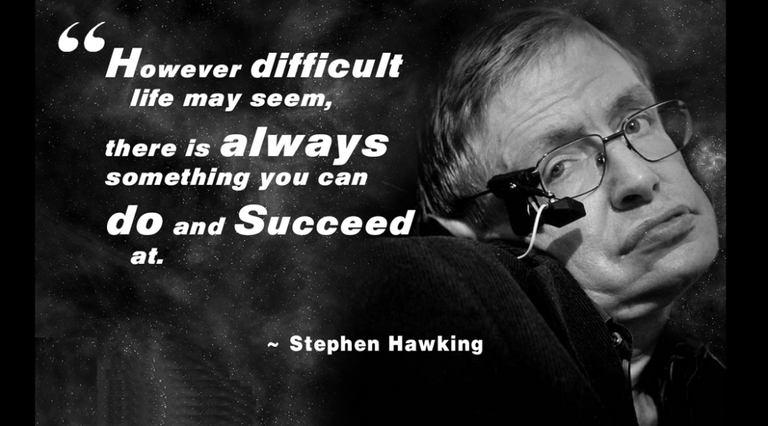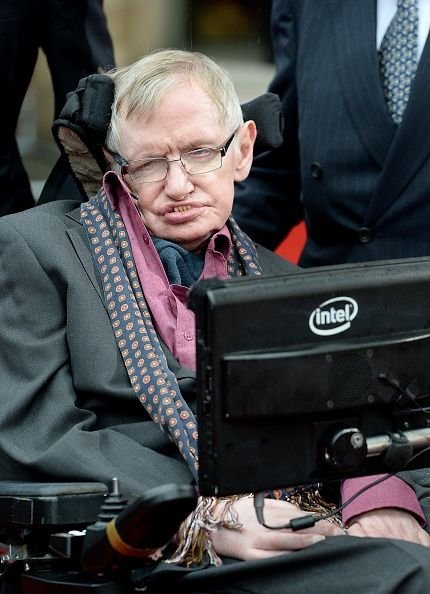
Stephen William Hawking was born on 8 January 1942 in Oxford, England. His family had moved to Oxford to escape the threat of V2 rockets over London. As a child, he showed prodigious talent and unorthodox study methods. On leaving school, he got a place at University College, Oxford University where he studied Physics. His physics tutor at Oxford, Robert Berman, later said that Stephen Hawking was an extraordinary student. He used few books and made no notes, but could work out theorems and solutions in a way other students couldn’t.
On gaining a B.A.Hons in Physics, he briefly stayed to study astronomy but was not interested in observing sunspots so moved to Trinity College, Cambridge where he was able to pursue his passion for theoretical astronomy and cosmology.
It was in Cambridge that Stephen Hawking first started to develop symptoms of neuro-muscular problems – a type of motor neuron disease. This quickly started to hamper his physical movements. His speech became slurred, and he became unable to even to feed himself. At one stage, the doctors gave him a lifespan of three years. However, the progress of the disease slowed down, and he has managed to overcome his severe disability to continue his research and active public engagements. At Cambridge, a fellow scientist developed a synthetic speech device which enabled him to speak by using a touchpad. This early synthetic speech sound has become the ‘voice’ of Stephen Hawking, and as a result, he has kept the original sound of this early model – despite technological advancements.
Nevertheless, despite the latest technology, it can still be a time-consuming process for him to communicate. Stephen Hawking has taken a pragmatic view to his disability:
“It is a waste of time to be angry about my disability. One has to get on with life and I haven’t done badly. People won’t have time for you if you are always angry or complaining. ” The Guardian (27 September 2005)

Stephen Hawking’s principal fields of research have been involved in theoretical cosmology and quantum gravity.
Amongst many other achievements, he developed a mathematical model for Albert Einstein’s General Theory of Relativity. He has also undertaken a lot of work on the nature of the Universe, The Big Bang and Black Holes.
In 1974, he outlined his theory that black holes leak energy and fade away to nothing. This became known as “Hawking radiation” in 1974. With mathematicians Roger Penrose he demonstrated that Einstein’s General Theory of Relativity implies space and time would have a beginning in the Big Bang and an end in black holes.
Despite being one of the best physicists of his generation, he has also been able to translate difficult physics models into a general understanding for the general public. His books – A Brief History of Time and The Universe in A Nutshell have both became runaway bestsellers – with a Brief History of Time staying in the Bestsellers lists for over 230 weeks and selling over 10 million copies. In his books, Hawking tries to explain scientific concepts in everyday language and give an overview to the workings behind the cosmos.
“My goal is simple. It is a complete understanding of the universe, why it is as it is and why it exists at all.”
– Stephen Hawking’s Universe (1985) by John Boslough, Ch. 7
I Hope this was helpful
Follow me and upvote @pauldoptimist